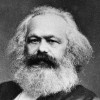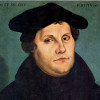“ Man's power makes use of means, the divine power is self-active. ”
Jean-Jacques Rousseau, Emile, or On Education (1762). copy citation
| Author | Jean-Jacques Rousseau |
|---|---|
| Source | Emile, or On Education |
| Topic | power meaning |
| Date | 1762 |
| Language | English |
| Reference | |
| Note | Translated by Barbara Foxley |
| Weblink | http://www.gutenberg.org/cache/epub/5427/pg5427-images.html |
Context
“there is neither premise nor conclusion for him, there is not even a proposition. The Supreme Intelligence is wholly intuitive, it sees what is and what shall be; all truths are one for it, as all places are but one point and all time but one moment. Man's power makes use of means, the divine power is self-active. God can because he wills; his will is his power. God is good; this is certain; but man finds his happiness in the welfare of his kind. God's happiness consists in the love of order; for it is through order that he maintains what is, and unites each part in the whole.”
source



